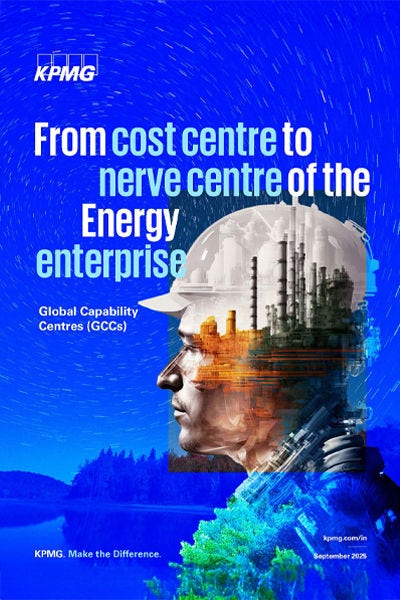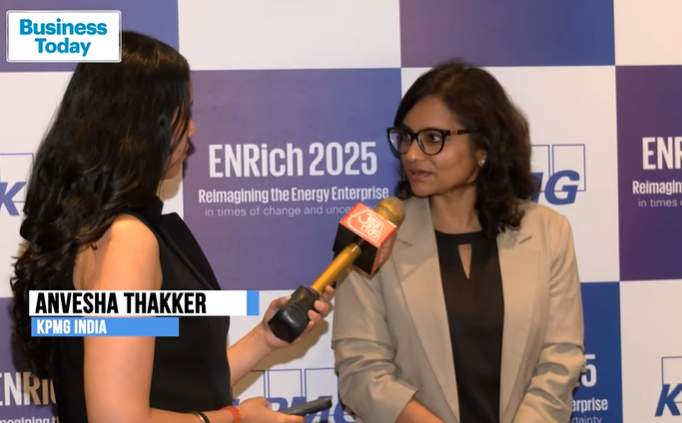Geopolitics, technology and sustainability priorities are reshaping the energy and resources sector. The consequent changes in enterprise strategy, structure, capabilities and ways of working have become pronounced. The energy production and supply landscape has also been changing with renewables, energy storage, and now nuclear power (almost a pariah just two years ago) becoming mainstream. Since early in the year, we also have heightened geopolitical impacts that has inserted new uncertainty in energy demand, prices and supply chains. All of these are material bearing on the market dynamics and strategies, which is what we will explore at ENRich 2025.
Reimagining the energy enterprise in times of change and uncertainty
Beyond the impact of heightened geopolitics, there are some significant trends at play that will reshape the energy industry. Modern AI is the foremost among them and there is no doubt that it is reshaping the energy sector. It presents challenges, such as navigating cybersecurity risks, addressing ethical considerations and of course the demands it places on our industry. At the same time, AI offers transformative opportunities — optimizing operations, innovative product development, driving predictive maintenance to boost efficiency, radically transforming safety, and much more. With the advent of AI/ML, Generative AI and Agentic AI coming together to deliver unforeseen possibilities, the sector is expected to witness a very fast paced change. This is also fundamentally reshaping the construct of a modern energy organisation.
ENRich, KPMG in India’s flagship ENR conclave, is not a usual conference – it serves as a major forum for ideation among senior stakeholders in a very different format that provides space for open deliberations and identification of consequential actions with significant participation from senior policy makers and industry leaders on the panels.
From cost centre to nerve centre of the Energy enterprise
Explore the growing centrality of Global Capability Centres (GCC) in the emergent future, with a focus on what it means for senior leadership and boards of energy majors

Watch session recordings
- 16 September, 2025
- 17 September, 2025
Hear from the experts

Is India Inc Embracing AI In Renewable Energy?
Anvesh Thakker shared insights on how the global energy transition is becoming increasingly politicised amid current geo-political tensions, and whether India is on track to meet its 2030 goals. The role of AI in shaping renewable energy and how Indian corporates are adapting to this technology, while examining transition challenges in a volatile environment influenced by the US, China, and Russia.
KPMG leaders on ENRich 2025
- Yezdi Nagporewalla
- Anish De
- Akhilesh Tuteja
- Shalini Pillay
- Vijay Chawla
- Anvesha Thakker
- Vikas Gaba
- Nikhil Moghe
- Sammy Ahmed
- Matt Firla-Cuchra
- John McCalla-Leacy
- Matt Pearce
- Michael Hayes
- Colm O'Neill
- Clare Maio
- Goran Mazar
- Surbjit Laroya-Annan
From a focused internal dialogue to a global platform for action — ENRich has come a long way. Over 16 years, it has grown in scope, stature, and relevance, becoming a catalyst for conversations that matter. This year’s theme reflects a powerful truth:
Sustainability is no longer an aspiration – it’s a test of resilience
As India continues to lead global growth, driven by strong domestic demand and macroeconomic stability, the energy sector stands at a pivotal moment.
Looking ahead to 2030, the modern energy enterprise will be transformed – with AI at the core and GCCs as the engine of execution. Three priorities will define this transformation:
- Embed AI across the enterprise – from operations to decision-making
- Reimagine structures and operating models – with GCCs at the center
- Elevate culture and ways of working – because transformation is as much about people as it is about technology
India has massive potential to lead the medtech revolutions by leveraging its talent, demand, and policy intent. India must scale responsibly, address unmet needs, foster partnerships, and embrace inclusive, open innovation models - especially in rural and underserved areas- while drawing inspiration from global markets like Japan, Singapore, and China. There is need for agile regulatory frameworks, increased investment in infrastructure, and collaborative platforms to drive India-specific innovations that improve accessibility, affordability, and patient outcomes
Technology is now central across all industries, not just the tech sector. True success lies in combining rational systems with emotional intelligence, enabling organisations to integrate digital tools while preserving human value, ensuring transformation impacts both business and people
Structured support mechanisms like regulatory sandboxes, public private platforms, and inventive procurement models are essential to scale frontier technologies and move them towards commercialisation
Nikhil Moghe,
C&O-Energy & Infra-O&G
KPMG India
Nikhil Moghe, Partner, KPMG in India while moderating the panel discussion on "Role of oil & gas in the changing energy landscape" at the Economic Times Energy Leadership Summit shared his insights, “The Indian energy sector, and particularly the oil and gas domain, is navigating a period of profound transformation. Two powerful forces are shaping this evolution: first, the imperative of energy transition and decarbonisation; and second, the emergence of AI-enabled innovations and interventions.”
By 2050, India is set to emerge as the world’s largest refining powerhouse, while energy transition is a prevalent topic among the affluent, for the less privileged it is simply about access—providing energy to those who currently do not have any. Balancing these priorities is essential as we plan for an inclusive energy future.
Matt Firla-Cuchra
Partner at KPMG, UK Head of Water, Power & Utilities, Global Lead Nuclear Energy
KPMG in the UK
Nuclear energy, once a point of political contention, is now finding broad acceptance. With supportive policies and favorable regulatory frameworks, small modular reactors can play a pivotal role in the transition. When policy certainty aligns with technology readiness, the path for financing and deployment becomes clear
Rising costs remain a critical bottleneck, making affordability the foremost challenge to achieving a smooth and inclusive energy transition for households and communities
Mobilising climate finance in India depends on policy certainty and investible NDCs. A strong project pipeline, backed by transparent carbon markets, builds confidence, and draws capital, while early involvement of insurance companies can unlock additional risk-sharing in emerging market
AI holds immense potential to optimise energy use and strengthen data centres, but public trust will only grow when expectations are managed realistically and AI consistently delivers measurable results, not magic
Clare Maio,
Global Lead Partner, ENR
KPMG UK
The true barrier to innovation in large orgainsations is not technology but integration - where legacy systems, siloed data, and cultural inertia slow progress, even as digital twins, blockchain, robotics, and advanced analytics promise transformative potential
We must move beyond newspaper headlines and divisions to create an attractive environment for investment. By focusing on shared solutions rather than fragmented narratives, the Global South can unlock capital flows and drive sustainable growth fragmentation
Leaders must embrace evolving operating models and collaborate as ecosystems. While jobs will continue to transform, opportunities will expand. Agility, foresight, and collective leadership are essential to shape the workforce of tomorrow and harness transformation’s full potential for growth
Media
Press release
From cost centre to nerve centre - How GCCs are powering the future of energy: KPMG in India report
Our latest thinking
India insights
Transcript (PDF 58 KB).
Anish De, Global Head of Energy, Natural Resources and Chemicals KPMG International in conversation with Mike Hayes, Climate Change and Decarbonization Leader, KPMG International, discuss how leaders can harness AI to drive measurable progress toward net-zero, balance innovation with responsibility, and align with long-term climate strategies.





























